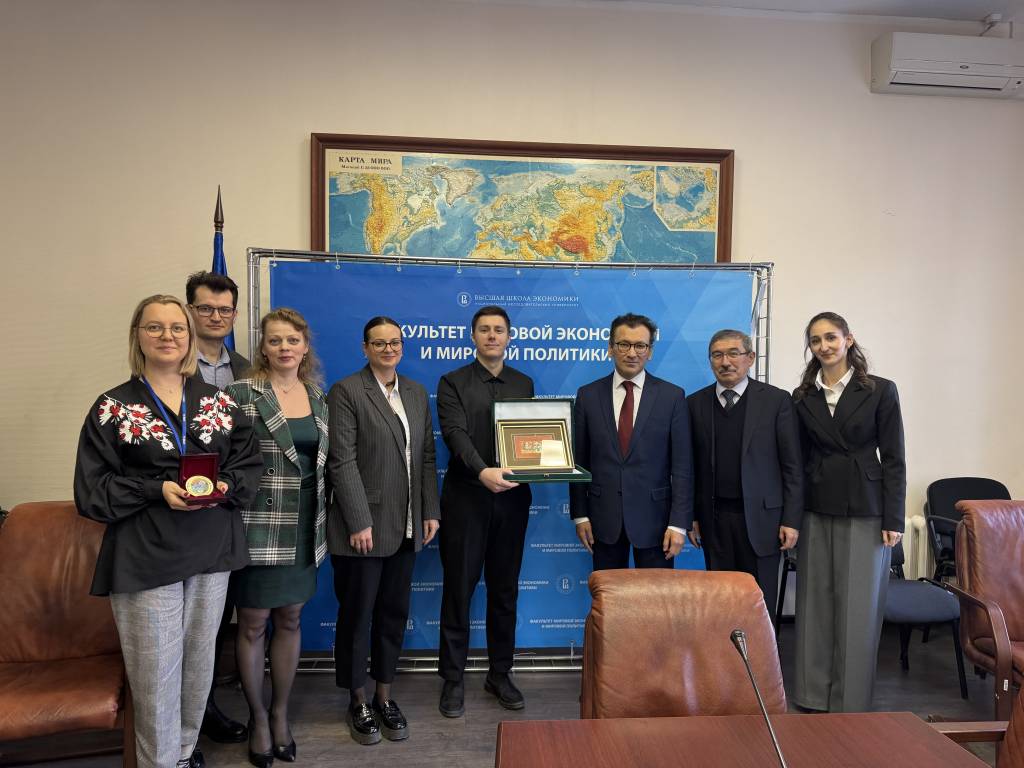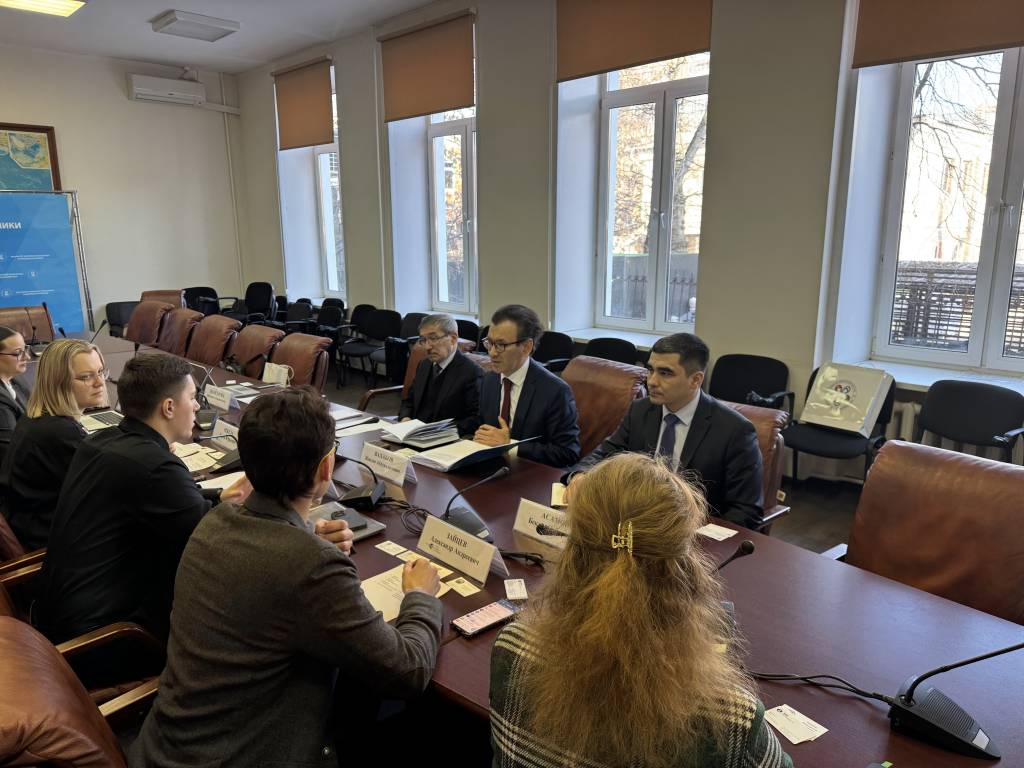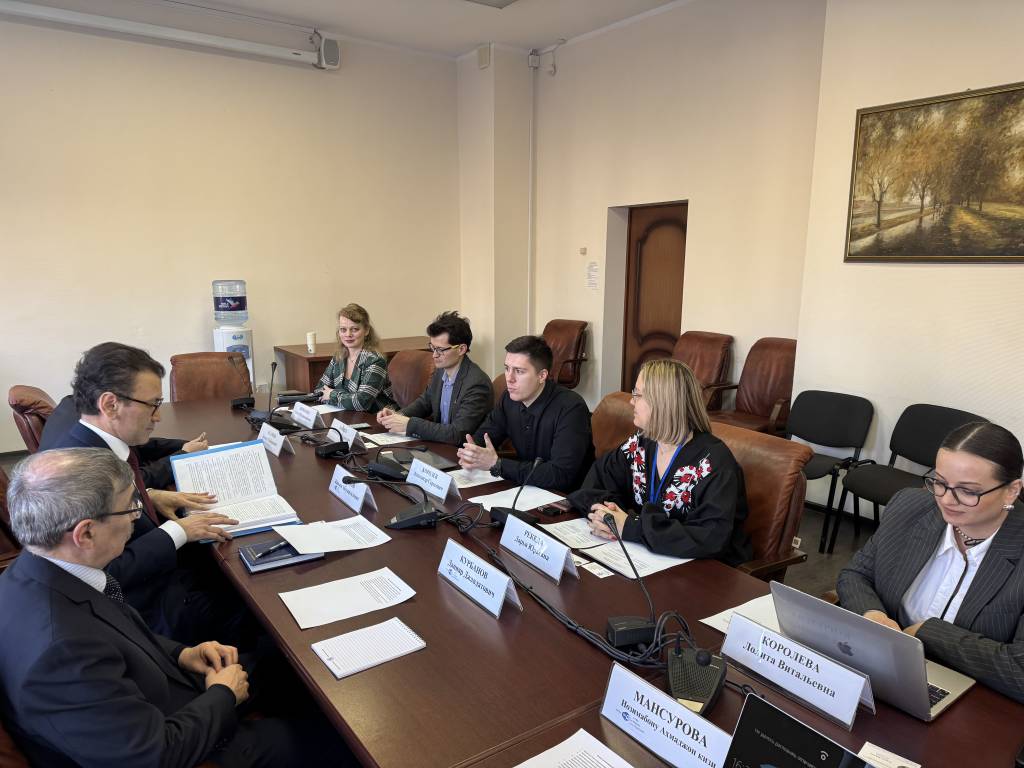
During its visit to Moscow, a delegation from the International Institute for Central Asia (IICA), led by Director Javlon Vakhabov, visited the Centre for Comprehensive European and International Studies (CCEIS) at the Higher School of Economics (HSE).
The Russian side was represented by Deputy Director Alexander Korolev, along with research fellows Darya Rekeda, Alexander Zaitsev, Olga Biryukova, and Lolita Koroleva.
At the meeting, the parties discussed prospects for developing cooperation, focusing on strengthening ties in scientific research, educational programs, and analytical projects related to Central Asia.

Mr. Vakhabov emphasized that cooperation with CCEIS at HSE is essential in strengthening scientific ties with the Russian expert and analytical community. He also noted that joint efforts will allow for a more in-depth analysis of regional processes and contribute to developing practical recommendations for addressing pressing regional issues.
In turn, Alexander Korolev stated that since 2018, CCEIS at HSE has been actively studying the post-Soviet space, with Central Asia being one of its key areas of focus. According to him, Central Asia runs as a “red thread” through all the center’s research, and there is a growing need for an expanded academic study of the region.

Following the meeting, an agreement was reached to continue cooperation with an emphasis on effectively utilizing the potential of the expert community for a deeper and more comprehensive understanding of regional processes.
G. Khonnazarov, UzA








